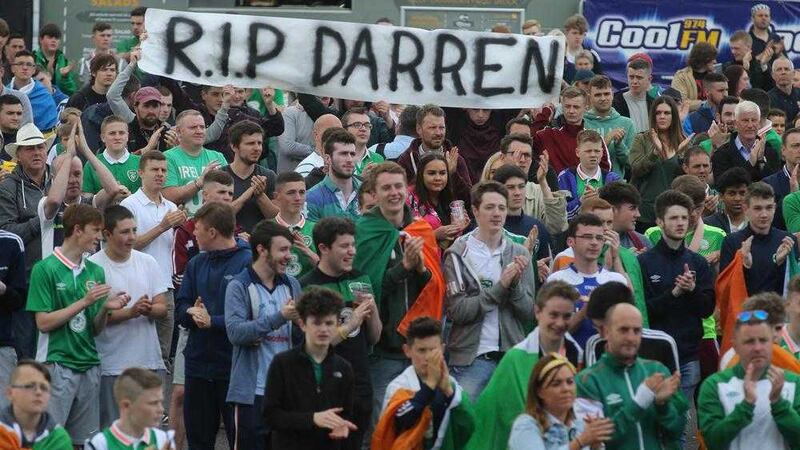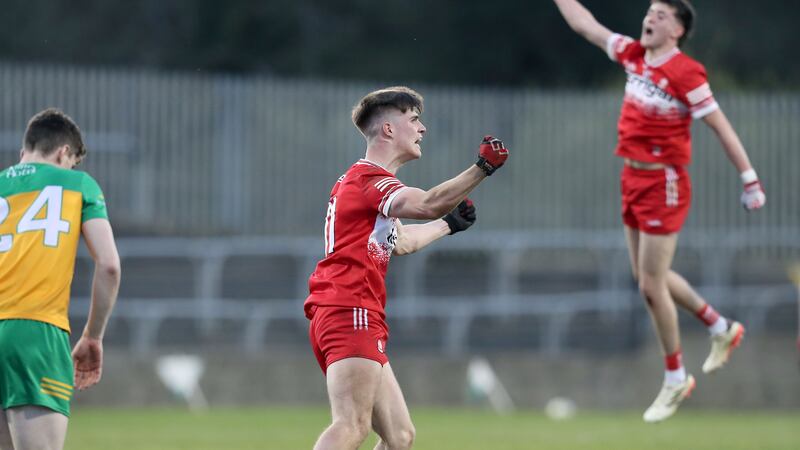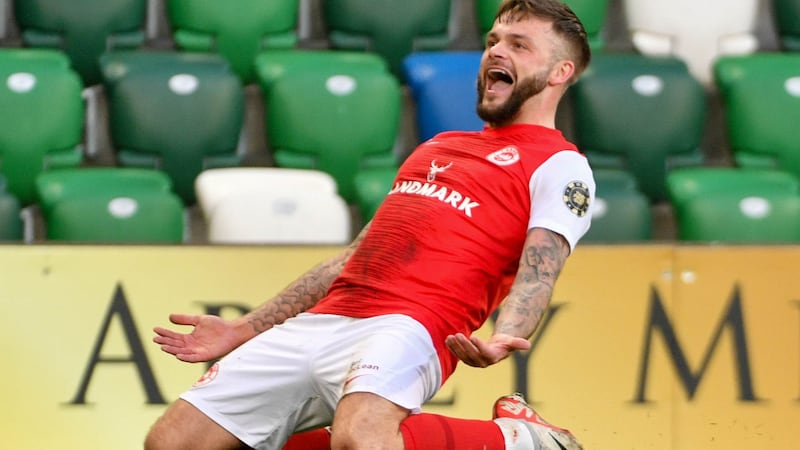THE O’Kane clan seldom crossed the border when we were children.
A houseful of five boys, we would have had my poor mother’s heart clean broke by the end of any significant car journey.
We holidayed between Dunfanaghy and Omeath, the former our favourite, with its pitch ‘n’ putt, copious Cidona and the lad Patrick with the flash car, whose mother owned the holiday home we’d have stayed in.
It was an hour-and-a-half up to Sheephaven Bay, but it seemed like three times that.
In the days before the law was tightened, we would have been crammed into the back seat of the old maroon Vauxhall Cavalier, sitting over the top of each other.
All it took was one slap and chaos would have broken out. Climbing over the top of each other to get retaliation in. You’d have needed the room of a minibus to keep us apart.
The one time you sat properly, stoically still was when you saw the police or the army. It was ordinarily at the border heading into Muff for diesel.
“Have yous them seatbelts on yous?” we’d be quizzed as we ripped them down and clamped them under our arses, because it seemed less shifty than to be seen actually clipping them in.
Those rare, and brief encounters, were my only dealings with any of the armed or security forces as a child. They would have poked their heads in the window for a moment, looked in, and waved us on our way.
As 90s children, growing up in a sleepy hamlet in county Derry, we experienced absolutely nothing of the Troubles.
It may still have been ongoing when we were being reared, but it was nowhere near us. Belfast might as well have been Bolivia as far as we were concerned.
As soon as you leave our almost-exclusively Nationalist village of Gortnaghey, you’re met by the almost-exclusively Protestant village of Burnfoot.
In another part of the country, the end of the Gortnaghey Road heading on to the Drumrane Road would have been an interface.
Maybe it was at some point, I don’t know. But I’ve never known it to be. I’ve never known it to be anything beyond a friendly venture down the road.
For years, we had no shop and Gortnaghey residents would have all been in Burnfoot shop on a daily basis. It never cost a second thought.
The place might have been decorated with Union Jacks and the kerbs red, white and blue, but when you set foot through the door with your Gaelic jersey on, you got the same smile and the same service as the locals.
For as long as I can remember, the two Community Associations have been paired. The two primary schools have always been closely linked. We all went swimming together, and paired up for quizzes.
Burnfoot has no bar, so Dolphin Bar in our parish has always been semi-populated by our neighbours. Nobody cares.
That’s just the way life is for us. The way it always has been.
We’re blessed in that regard. You watch films, you read books, you see documentaries and you know that the people of this country have spent far too many decades in a vice-grip of fear.
Last week, I finally got around to reading Michael Foley’s masterpiece, The Bloodied Field. It tells the tale of Bloody Sunday in Dublin in November 1920.
The detail is gruesome. In June of that year, RIC Divisional Commander Bryce Ferguson Smyth made a speech in Listowel, County Kerry, that, as Foley puts it, “reflected how the Black and Tans’ sense of duty and discipline had become warped and distorted by Ireland.”
Ferguson Smyth told his troops: “You may make mistakes occasionally and innocent persons may be shot, but that cannot be helped, and you are bound to get the right parties some time. The more you shoot, the better I will like you, and I assure you no policeman will get into trouble for shooting any man.”
Maybe it’s to my shame that it was the first time I’d realised how bloody and gruesome a place Ireland must have been in that period.
And from the time of the Civil Rights marches of the 1960s until the Good Friday Agreement, this part of the world I imagine would have been equally bad.
But I feel genuinely blessed to have grown up oblivious to it, at least for long enough to know better than to go down the path of hatred and bigotry.
In November 1993, the unrest was at its most lethal. 23 people had been killed in the month leading up to a crucial World Cup Qualifier between Northern Ireland and the Republic.
When the Republic team arrived in east Belfast, they were met by a group of 10- and 11-year olds with their hands cocked in the shape of guns, shouting “Fenian b******s”.
“I’ve never seen a more hostile atmosphere, not even in Turkey,” said Jack Charlton.
Alan McLoughlin’s equaliser was enough to send the Republic to USA ’94, and he recalled the dark humour that enveloped the squad, who began speculating on which of them would be assassinated first.
November 1993 was in my lifetime, but I don’t remember it and I find it very hard to reconcile with.
The general change in the mentality of the people of this country, on both sides, was never better emphasised than over the past few weeks of Euro 2016.
I much prefer the recent pictures of two fans with their arms around each other, one draped in a tricolour, the other in the Ulster banner.
I prefer the sight of a Republic of Ireland jersey in the heart of the Northern Ireland support during their defeat by Wales; of an absolute absence of sectarian songs from either end; people from both sides mixing at the Fan Zones in Belfast and Derry.
Best of all was the Republic fans’ in-game tribute to Darren Rodgers, who tragically died while out in France supporting Northern Ireland.
You can be sure that in times gone by, that would have the catalyst for a sickening chant. Instead, in the 24th minute of their game with Sweden, the Irish fans rose to their feet and chanted “stand up for the Ulster man” in memory of the 24-year-old.
It was a defining moment in the country’s history.
After almost a full century of bitter division up and down the country, and with politicians ever at war, it's taken the ordinary people of this great island to display all that is good.
The Good Friday Agreement gave the north stability and safety. Sport has given it unity.
Brexit might force the checkpoints back upon Muff, but I don’t think the five of us would still fit in the back seat of a Cavalier. Those days are gone. The longer they stay away, the better.









